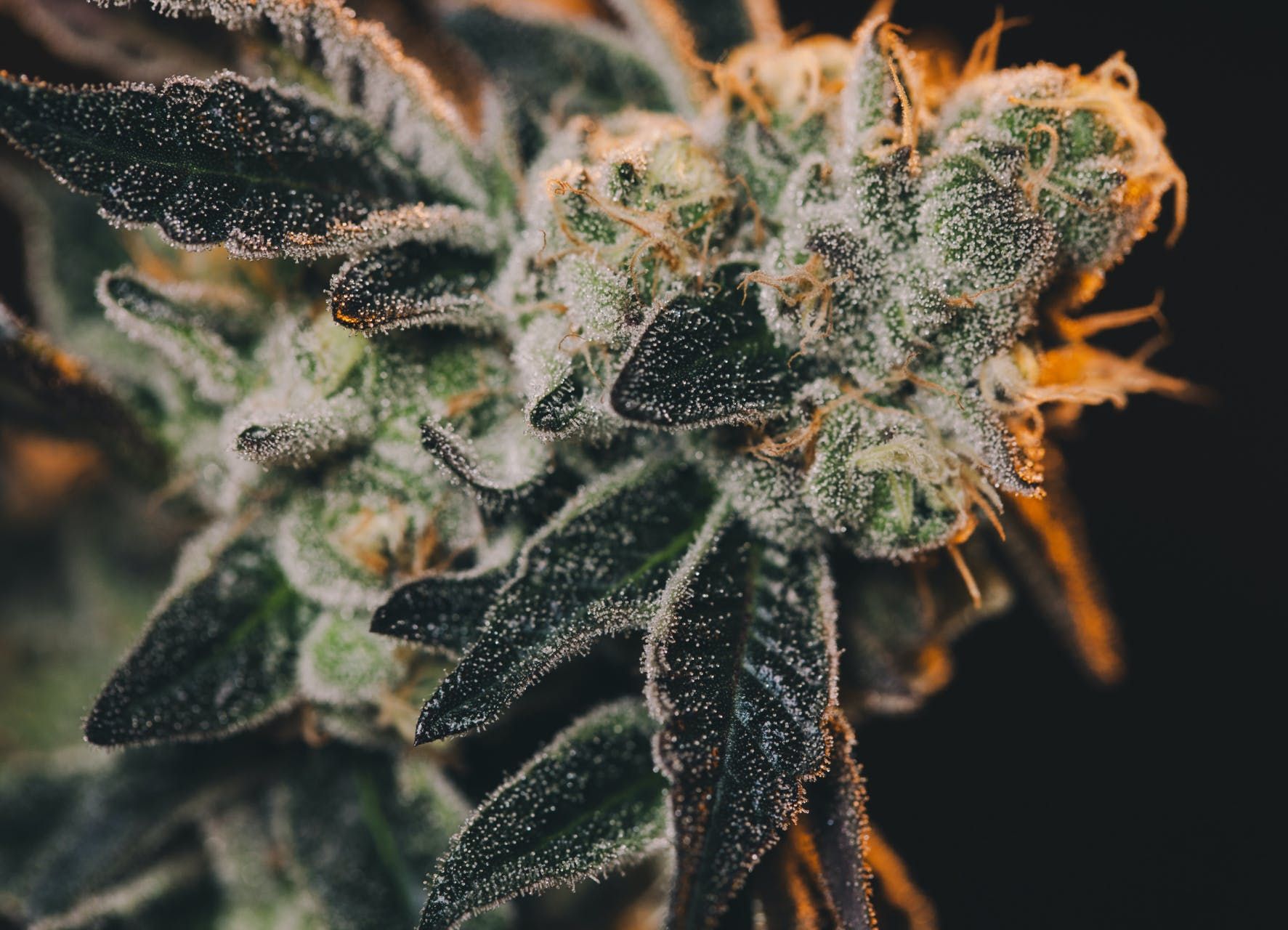Cannabis strains high in THC, or tetrahydrocannabinol, are in demand these days. But whether you’re taking cannabis for recreational or for medical purposes, research suggests that where THC is concerned, more isn’t necessarily better.
Over the past 30 years or so, the average THC content of cannabis has skyrocketed, rising from around 2% in the 1980s to more than 10% today. Some of today’s super-high THC strains may have as much as 20–30% of the cannabinoid, far beyond levels found naturally in the cannabis plant.
But does it matter when the THC level is so high? Are there any benefits to consuming high-THC cannabis, or is there really no point past a certain level?
History of High-THC Cannabis
The trend toward high-THC cannabis has its roots in the old days, when the “best” cannabis was the one that got people highest. Today, marijuana growers can use science-backed cultivation techniques to develop the very high THC cannabis strains that are considerably stronger than those from earlier eras.
These “mutated” cannabis strains are specifically cultivated to have larger than normal amounts of THC. But this THC content can come at the expense of other important compounds and terpenes that affect a person’s experience with cannabis.
This jump in THC content is fuel for anti-drug messages claiming that cannabis is more dangerous and addictive now than it used to be. These messages may be largely inaccurate, but cannabis that’s grown exclusively for a high THC percentage can have some unintended effects for both recreational and medicinal consumers.
This is thanks to the complex relationship between THC, other cannabis compounds and the body’s natural endocannabinoid system (ECS).
How Does THC Affect the Body?
Delta-9 tetrahydrocannabinol is its official name, but marijuana consumers everywhere know it simply as THC. This compound typically causes a relaxing, euphoric feeling. This is because THC directly affects a kind of receptor that’s part of the body’s ECS—a large network of receptors on cells found throughout the body.
These receptors respond to cannabinoid-like substances produced by the body itself, called endocannabinoids, and also to compounds like THC found in the cannabis plant.
Though scientists only discovered the ECS a few decades ago, they now know that it’s one of the most important regulatory systems in the body. Research has revealed that the ECS is responsible for keeping many other subsystems in balance thereby helping maintain good health.
At this point, researchers have identified two main endocannabinoid receptors: CB1 and CB2. THC binds directly with CB1 receptors in the brain, which affects neural activity related to:
- Mood
- Memory
- The pleasure/reward circuit
THC’s effect on the brain depends not only on how much cannabis a person consumes, but also how it’s consumed.
For example, when you smoke or vape cannabis, it can enter the bloodstream and reach the brain relatively quickly. But when you consume marijuana via an edible, it must go through the liver, which slows the process and makes THC less bioavailable, or accessible to the body.
Each cannabis strain has a unique profile that comes from the relative amounts of cannabis compounds and terpenes it contains. This also plays a role in the way THC interacts with the CB1 receptors in the brain.
The ECS itself can also vary from person to person. Some folks have a high concentration of receptors in specific areas of the brain and body, while others may have fewer. In addition, other processes are taking place that affect how these receptors respond.
All of these factors play a role in how THC in general, and high-THC marijuana in particular, can affect people who consume cannabis for recreation and/or medicinal purposes.
Too much THC for one person may be just the right amount for another. But whether you get too much THC by taking a lot of cannabis for a long time, or by consuming cannabis with ultra-high THC levels, you may experience a number of side effects that can include:
- Anxiety, paranoia and agitation
- Dry mouth
- Nausea and gastrointestinal upsets
- Excessive hunger
But as Dr. Richard Kim of HelloMD points out, people who consume a lot of THC on a regular basis can develop a tolerance to high-THC cannabis, and their effects may not bother them.
“Excessive THC consumption leads to downregulation of the brain’s CB1 receptors, so that they don’t respond to THC as strongly as before,” he says. This is why many consumers seek out extremely high THC cannabis strains.
But when CB1 receptors are downregulated (i.e., the body expresses fewer CB1 receptors) from overuse, according to Dr. Kim, “it becomes impossible to get as high as before, no matter how much THC is taken.”
Taking in more THC won’t provide the effect the consumer’s looking for, but a period of abstinence will. A recent study found that taking a break from cannabis for about a month can allow overwhelmed receptors to return to their normal state.
CBD & Other Cannabis Compounds Balance THC’s Effects
THC doesn’t exist in isolation. Even in high-THC strains, this compound exists alongside more than a hundred other compounds and terpenes—plant resins that add flavor and scent as well as documented health benefits of their own.
The most abundant and best known of these other compounds is cannabidiol (CBD), a substance that doesn’t make consumers feel high like THC can. CBD has a long list of well-researched therapeutic effects, like easing:
- Nausea
- Vomiting
- Seizures
- Anxiety
- Depression
- Psychosis
- Inflammation
CBD also plays an important role in controlling the effects of THC. Although it doesn’t bind directly to the CB1 receptor as THC does, CBD can damp down THC’s effects. This prevents consumers from getting too high and experiencing negative effects like anxiety and paranoid thoughts.
An allosteric modulator is a substance that can either enhance or inhibit the way a receptor like CB1 transmits its signal. These modulators can actually change the shape of the receptor itself.
Positive allosteric modulators boost the receptor’s affinity for a particular neurotransmitter, while negative ones weaken it. CBD is a negative allosteric modulator for THC—it reduces the ability of the CB1 receptor to bind with THC, so that the effects aren’t as intense.
In the body, delta-9 THC can convert to an even more psychoactive form called 11-hydroxy-THC. CBD can block the metabolic processes that create 11-hydroxy-THC, and this also helps moderate the high from THC.
Cannabis Compounds & Terpenes Work Together in Balance
CBD isn’t the only cannabis compound that can affect the behavior of THC. Less familiar cannabinoids play a role too, including:
- Cannabigerol (CBG)), which may boost the production of the bliss molecule anandamide
- Cannabinol (CBN)
Terpenes can also influence how THC behaves, for example:
- Myrcene
- Limonene
The synergy of all cannabis compounds working together in balance is called the entourage effect. This is why a marijuana strain that’s high in THC but also high in CBD can have a less potent effect than a high-THC cannabis strain with an insignificant amount of CBD.
But when cannabis strains are cultivated exclusively for high levels of THC, this balance is lost. As HelloMD’s Dr. Kim observes, the less we focus on the many ancillary ingredients in natural cannabis, “the further we mutate hybridized cannabis into something more potent than Mother Nature ever intended.”
Because so many factors affect the body’s response to THC and other cannabis compounds, “too much THC” can be hard to define. But ultra-high THC strains and heavy long-term cannabis consumption can create some unwanted effects. This may lead to consumers having a high tolerance for THC, meaning they won’t feel much of or any effects at all.
Plus, these “mutated” cannabis strains may not have the balancing and therapeutic effects of strains that have more harmonious ratios of other cannabinoids and terpenes.
Photo credit: Canna Obscura/Shutterstock.com
If you’re new to cannabis and want to learn more, take a look at our Cannabis 101 index of articles. And if you have questions about cannabis, ask them and our community will answer.






